|
In this Issue...
End of the Year Message from our President- Dr. Jill McGaughy
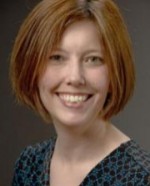 Professor of Psychology Professor of Psychology
Faculty Fellow - Office of Engagement and Faculty Development
President Elect - International Behavioral Neuroscience Society
http://www.ibnsconnect.org/
University of New Hampshire
Durham, NH 03824
Since our meeting in Puerto Vallarta, we have been busy preparing for our 2022 meeting in Glasgow, Scotland, and have begun many new, exciting initiatives. The Program Committee, led by Drs. Greg Carr, chair, and Fair Vassoler, co-chair, are busy selecting our symposia, confirming our keynote speakers, and providing excellent training opportunities for all at the 2022 meeting. I’m grateful to everyone who submitted symposia proposals and encouraged your colleagues to do so. These efforts have yielded our highest ever submission rate! This year the Program Committee is also working on new ways to highlight behavioral neuroscientists in the Glasgow area. We will continue to update everyone about the upcoming meeting, so check your emails and social media. Thanks to Greg, Fair, and all the Program Committee members for your ongoing work to craft another outstanding meeting.
The Ethics and Diversity Committee, chaired by Dr. Susan Sangha and co-chaired by Dr. Janine Kwapis, will begin the “IBNS (is) Staying Connected series. The first talk will be Thursday, Dec 9, 5 pm-6:15 pm EST, hosted by Drs. Nick Everett (Trainee Representative on Council) and Anand Gururajan (Ethics and Diversity Committee member). This series is aimed at providing early career researchers to present their research. We encourage late-stage Ph.D. students or post-doctoral researchers to tune in on December 9th and look for the next opportunity to apply for the next seminar: IBNS (is) Staying Connected.
The Education and Training Committee, led by Dr. Rachel Navarra, chair, and Dr. Sofiya Hupalo, co-chair, launched a Travel Award Pre-Review Program to help guide trainees in preparing more competitive applications. This initiative is aimed at increasing the cultural and international diversity of Travel Awardees. The deadline to apply for travel awards is December 15th, 2021. Undergraduate, graduate, and post-doctoral members are eligible to apply (Postdocs must be within seven years of receiving their Ph.D. and not have a regular, full-time position): IBNS Travel Awards.
The Finance and Fundraising Committee, chaired by Dr. Stacey Rizzo and co-chaired by Dr. Jill Silverman, is working on renewing the NIH R13 grant and continuing to work to ensure IBNS’s healthy financial future. We are grateful to Mikhail Pletnikov for agreeing to serve as our interim treasurer.
Our Membership and Communications Committee, chaired by Dr. Lizzie Manning and co-chaired by Dr. Millie Rincón-Cortés, has been working to improve IBNS outreach in Southeast Asia. Additionally, our social media team, Dr. Travis Hodges and Danny Lustberg has been spreading the word about ALL of these initiatives and promoting our society, members, and mission.
As we move forward, we ask for your assistance in spreading the word about our first IBNS (is) Staying Connected Seminar on December 9th and the upcoming deadline for Travel awards (December 15th). We will continue updates on the 2022 meetings as they become available. I am very grateful for the many talented, committed members of IBNS and am excited about the 2022 meeting.
Back to Top
Recap: Black in Neuro @ IBNS 2021
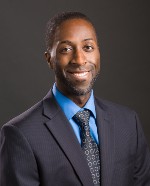 Nii Addy, PhD Nii Addy, PhD
Associate Professor of Psychiatry, Yale School of Medicine
IBNS Ethics and Diversity Committee Member
I was honored to co-host the Black in Neuro Social at the 2021 IBNS annual meeting, alongside Black in Neuro President, Angeline Dukes, and Director of Programs, Brielle Ferguson. It was encouraging to participate in such an inclusive IBNS and Black in Neuro event, which was open both to interested attendees, whether or not they were attending the IBNS annual conference. In this way, this inaugural social event hopefully introduced our scientific society to an even wider and more diverse audience. Our evening started with an inspiring presentation from Angeline and Brielle about the organization’s impressive community initiatives. I’ve had the privilege of participating in and speaking at Black In Neuro events since its inception. But every time I hear their overview, I’m still amazed and grateful for the way the Black In Neuro team has created opportunities for our community members to share their science, to network, to share and learn about resources, and to build visibility for those who identify as Black In Neuro. It’s an impactful organization that has empowered so many undergraduate, postdoctoral, post-baccalaureate, staff, faculty, and industry neuroscientists as well as others who identify as Black in Neuro, while also engaging many allies, supporters and advocates.
As someone who attended my first IBNS meeting as an undergraduate, the organization has played a critical role in my scientific development over the years, providing me with a scientific home, and a wonderful network of mentors, sponsors, advocates and colleagues. So, it was gratifying to see IBNS and Black In Neuro come together in such a genuine way. I also appreciated the creativity of our virtual meet and greet, organized by Angeline and Brielle. All the attendees seemed to enjoy getting to know one another. And personally, it was a great opportunity to meet other Black in Neuro and IBNS participants “in-person.” It was truly a highlight of the annual meeting, and a tradition that I hope we’ll continue.
Back to Top
Education and Training (E&T) Committee Report for the Annual Meeting 2021
 Sofiya Hupalo, PhD Sofiya Hupalo, PhD
National Institute of General Medical Science (NIGMS)
National Institute of Neurological Disorders and Stroke (NINDS)
Rachel Navarra, PhD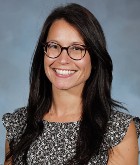
Assistant Professor
Department of Cell Biology and Neuroscience
Rowan SOM and GSBS
https://research.rowan.edu/research-areas/biomedical/navarra/
The IBNS Education and Training Committee’s mission is to promote the participation, achievement, and diversity of trainees in the Society. These efforts include providing assistance to students and postdocs for travel to the annual meeting, implementing training and mentorship programs within the field of Behavioral Neuroscience, and encouraging continued engagement with the Society and attendance at future meetings.
Current membership:
Rachel Navarra, Chair, Rowan University, Stratford, NJ, USA 2022
Zackary Cope, Past-Chair, University of Pittsburgh, Pittsburgh, PA, USA 2022
Sofiya Hupalo, Co-Chair, National Institutes of Health, Bethesda, MD, USA 2023
Susan Sangha, Diversity Committee Liaison, Purdue University, West Lafayette, IN, USA 2022
Noboru Hiroi, University of Texas Health Science Center, San Antonio, TX, USA 2022
Karen Szumlinski, University of California Santa Barbara, Santa Barbara, CA, USA 2022
Matt Hale, La Trobe University, Melbourne, Australia 2023
Kyle Ploense, Cayuga Biotech Inc., Mount Vernon, NY, USA 2024
Abha Rajbhandari, Icahn School of Medicine at Mount Sinai, NY, USA 2024
Wendy Wilson, Dickinson State University, Dickinson, ND, USA 2024
Molly Kent, Virginia Military Institute, Lexington, VA, USA 2024
Matthew McMurray, Miami University, Oxford, OH, USA 2024
Laura Been, Haverford College, Haverford, PA, USA 2024
Since the June 2021 meeting in Puerto Vallarta, Rachel Navarra has assumed position of Chair and Sofiya Hupalo as assumed position of Co-Chair.
The main initiatives for this year’s E&T committee and actions taken towards achieving these goals are described below:
1. Improvements to Travel Award application materials and Award selection process
- Eligibility: we have clarified eligibility rules regarding repeat travel award applications. Only one award per level of training is allowed.
- Deadlines: this year’s travel award application deadline is December 15, 2021
- Clarification on Travel Award funds: only a portion of travel will be reimbursed and Awardees must generally have supplemental funds to attend the meeting.
- Updates to application materials and scoring rubric: We have eliminated the Need Statement and replaced it with a Personal Statement. The Personal Statement will serve as a more holistic document describing how the award will benefit applicants’ education and training goals, how applicants plan to support the mission of IBNS, and allow applicants to explain financial need for travel funds if appropriate.
- We encourage those from institutions in underrepresented countries within IBNS membership to apply. We urge the IBNS councillors to relay this message to their respective continental populations.
2. We are creating a “Guide to Competitive Travel Award Applications.”
- The Guide will walk through each measure of the scoring rubric to clarify and describe how to build strong applications. Stay tuned!
3. Increase cultural and international diversity of travel awardees
To diversify the Travel Award applicant pool, we have 1) drafted the Guide under Initiative #2, and 2) launched the Pre-Award Program in Initiative #4 described below.
Please help spread the word to your networks! Our goal is to increase awareness that 1) we are actively seeking more diverse applications and 2) we are very eager to fund these applications!
4. We have launched a Pre-Award Program:
In support of IBNS’ mission to promote participation, achievement, and increase cultural and international diversity of trainees in behavioral neuroscience, we have launched the IBNS Pre-review Program. This Program will assist junior scientists (undergraduates, graduate students, and postdocs) in submitting competitive Travel Award applications to the Annual Meeting by pairing applicants with mentors who will pre-review and provide feedback on their award pre-application. The IBNS Pre-review Program will enhance diversity and strengthen international peer networks by supporting trainees from underrepresented populations and institutions within IBNS membership.
We are extremely pleased to report a total of 47 volunteer mentors! We also received a lot of great feedback and excitement about the program in the additional comments. We hope to improve and expand this program moving forward.
Back to Top
Membership and Communications (MCC) Report
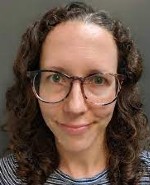 Elizabeth Manning, Ph.D. Elizabeth Manning, Ph.D.
Research Associate
School of Biomedical Sciences and Pharmacy
The University of Newcastle
University Drive, Callaghan NSW 2308 Australia
The MCC’s mission is to assist the Council with multiple issues associated with recruiting, maintaining, and communicating with IBNS members. One of the main functions is to consider and approve membership applications and assess applicant qualifications. The 5 categories off members are fellow, regular, student, postdoctoral and affiliate. The MCC also plays a role in actively recruiting new members and retain established members though traditional
Membership updates:
- Membership numbers: There are presently 458 active members
- 199 Regular
- 3 Affiliate
- 16 Emeritus
- 45 Lifetime
- 67 Postdoctoral
- 125 Student
- 180 lapsed members (2020 members who haven’t renewed, more than half in student category)
- Membership retention: We are yet to execute more personalized (by region) notes to send to lapsed members. We hope to work with reginal councilors with this, and to gain insight about why lapsed members haven’t renewed, and what could have encouraged them to stay. Additionally, we have been highlighting member benefits in order to promote retention.
- Membership recruitment: In the lead up to symposium submissions, European MCC members (Judith Kreutzmann, Anna Yotova and Agnieszka Potasiewicz) have worked with the European councilors (Markus Fendt and Markus Wöhr) to promote the Glasgow meeting to their colleagues in Europe, including a focus on membership discount countries. We also continue to make efforts to build relationships with behavioural neuroscience researchers at HBCUs, and it would be useful to know if any additional resources are available from the R13 grant to attract new members. In addition to this, the MCC has several new committee members with links to countries that are currently under-represented in IBNS, and we’re developing plans to communicate with researchers in those countries to better understand what IBNS could offer them as potential members, in consultation with the D&E committee. Some suggestions to attract participation from membership discount countries include:
- Special session at the annual meeting highlighting research from membership discount countries
- Discount registration
- Free registration for symposia participants
Communications updates:
1.Social media reach:
- Group Facebook page: 4,392 followers
- Professional Facebook page: 1,655 followers
- LinkedIn Group page: 5,801 followers
- Professional LinkedIn page: 193 followers
- Twitter: 3103 followers
- Instagram: 209 followers
2. Monitoring social media platforms: Platforms continue to be a vital component of our marketing strategy. Twitter continues to be our most active platform. Accessing Twitter handles through submissions (symposia, travel award applications etc) and member profiles would be helpful for the volunteers who are running the account. We have recruited a new Social media chair, Travis Hodges, who is receiving assistance in managing the Twitter account from Danny Lustberg and Lizzie Manning. We are engaging with members from regions where Facebook is more widely used by professional societies, to try and better understand how we can improve engagement through that platform.
3. Newsletter: We recently switched the newsletter to 6 issues/year. This has helped with ensuring quality and engaging content. The new link for members to submit content, is active, with prompts for subsection content including significant events and milestones, good news, and virtual mentors. Beginning to cross promote Newsletter content on social media and will also promote the content link in the lead up to the deadline for new issues.
4. Between committee communications: Via Jill, we have encouraged other committees to communicate with MCC directly about new initiatives in order to develop good plans for promotions and ensuring there isn’t overlap in activities and instead that the committees can work together on common goals. Thus far this appears to be helping with effective communication. A slack channel has been suggested to facilitate this.
Committee E-List address: [email protected]
Committee members
Elizabeth Manning, Chair, University of Newcastle, Australia 2022
Millie Rincón-Cortés, Co-Chair and Newsletter Chair, Univ. of Pittsburgh, PA, USA 2022
Fair Vassoler, Past-Chair, Tufts University, Hopkinton, MA, USA 2022
Judith Kreutzmann, Membership Chair,Otto-von-Guericke University, Magdeburg, Germany 2023
Travis Hodges, Social Media Chair, University of British Columbia, Vancouver, BC, Canada 2024
Nii Addy, Diversity Committee Liaison, Yale University, New Haven, CT, USA 2023
Jess Nithianantharajah, Florey Institute of Neuroscience & Mental Health, Melbourne, Australia
Julianne Jett, Washington State University, Spokane, WA, USA 2022
Donald McEachron, Drexel University, Philadelphia, PA, USA 2022
Daphne Ling, University of British Columbia, Vancouver, BC, Canada 2022
Stacia Lewendowski, Drexel Univ. College of Medicine, Philadelphia, PA, USA 2023
Agnieszka Potasiewicz, Polish Academy of Sciences, Krakow, Poland 2023
Danny Lustberg, Emory University, Atlanta, Georgia, USA 2024
Martin Job, Rowan University, Camden, NJ, USA 2024
Anna Yotova, Goethe University Hospital, Frankfurt, Germany
Nashaba Nawreen, University of Cincinnati, Cincinnati, OH, USA 2024
Peter Clark, Iowa State University, Ames, IA, USA 2024
Johnny Kenton, University of California San Diego, La Jolla, CA, USA 2024
Back to Top
1st impressions of IBNS
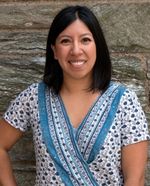 Evelyn Ordoñes Sanchez Evelyn Ordoñes Sanchez
Graduate Student Travel Awardee and newly minted PhD!
Temple University
Earlier this year I was super excited to learn I had been awarded an IBNS 2021 travel award! Even though I did not attend the conference in person, I still really enjoyed the experience and appreciated the perks of being a travel awardee. By being a travel award recipient, I was enrolled in the IBNS mentorship program, which meant I had the opportunity to be paired with a mentor. My mentor was Dr. Susan Sangha and meeting with her was a great experience as she shared her research, career trajectory, and graduate school advice with me. Despite not meeting in person, it was still great to be able to connect with another amazing scientist and expand my professional network in this manner.
Aside from being paired with a mentor, I also thought the poster presentation format was pretty cool because it was still really interactive despite being virtual. For example, you could still see how many people were attending different posters and it was funny to randomly sit/join little virtual “tables” to watch someone share their work. I appreciated how the conference went out of its way to still make the poster sessions super interactive. I also thought that this year’s conference had many great panels/workshops like Animal Models in Behavioral Neuroscience, Black in Neuro, Meet the Professionals, and Women in Learning. All of these were super interesting and offered attendees invaluable advice/perspectives from many amazing scientists. I think this is part of the beauty of smaller conferences in comparison to larger ones like Society for Neuroscience, because IBNS truly allows more opportunities to network and meet lead scientists from various fields/specialties without feeling super overwhelmed or lost in the crowd.
In the end, I really enjoyed attending the IBNS 2021 meeting and would encourage other trainees interested in attending this conference to attend and apply for the travel award! The IBNS community feels like a small scientific family and everyone truly wants to help trainees advance in their scientific careers and provide them many opportunities that will benefit their career development.
Back to Top
Research Highlights
Physiological estrogen levels may modulate memory impairments induced by multiple acute concurrent stresses
 Rachael E. Hokenson Rachael E. Hokenson
Ph.D. Candidate | NIMH T32 Trainee
Department of Anatomy and Neurobiology
University of California, Irvine
Acute traumas - complex events which consist of simultaneous physical, emotional, and social stresses - are recognized to provoke memory disturbances, including posttraumatic stress disorder. Stress-related disorders disproportionally affect women, so careful analysis by sex of the underlying mechanisms of stress disorders is crucial. Multiple acute concurrent stresses impair spatial memory in male rodents, but the effects in female rodents were unknown. Here, the researchers identified estrous cycle-dependent effects of such stresses on memory in females. Surprisingly, this study finds that female mice in proestrus (higher physiological estrogen levels) experienced stress-induced memory impairment and a loss of underlying synapses in the dorsal hippocampus while mice in estrus (lower estrogen) were protected against stress. These findings suggest a novel mechanism by which estrogen levels promote memory impairments induced by simultaneous, acute stresses.
Hokenson RE, Short AK, Chen Y, Pham AL, Adams ET, Bolton JL, Swarup V, Gall CM, Baram TZ (2021) Unexpected role of physiological estrogen in acute stress-induced memory deficits. J Neurosci 41:648–662.
Rachael, a PhD candidate in the Baram Lab, along with postdoctoral scholar Annabel Short, led the studies for this publication. Rachael is currently investigating the mechanisms by which estrogen mediates stress-induced memory impairments in male and female mice for their dissertation work.
Back to Top
IBNS: Beyond networking, developing collaborations through support from senior members
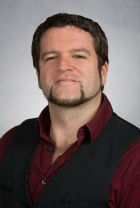 Jared W. Young, PhD Jared W. Young, PhD
Professor
Department of Psychiatry, University of California, San Diego
Co-Director, Neuropsychopharmacology Unit,
MIRECC Research Service, VA San Diego Healthcare System, San Diego
Past-President of the International Behavioral Neuroscience Society
http://www.ibnsconnect.org/
IBNS 31stth meeting, June 7th-11th 2022: Glasgow, Scotland, UK.
We are excited to announce the publication of our Center work that I presented at IBNS (2019); Cavnnagh, Gregg, Light, Olguin, Sharp, Bismark, Bhakta, Swerdlow, Brigman, & Young (2021), Electrophysiological biomarkers of behavioral dimensions from cross-species paradigms https://www.nature.com/articles/s41398-021-01562-w. This work is the result of a long-term collaboration between IBNS Fellow Dr. Jonathan Brigman of University of New Mexico and I that was founded in IBNS.
This work exemplifies the brilliance of IBNS meetings. Jon and I met in 2009, when I was Student Council Representative, after I organized and held a Grants Writing Workshop. This workshop included a Mock Study Section, with help from Past Presidents Drs. Kelly Lambert and Robert Gerlai. This effort provided students an insight into the inner workings of a study section. Jon and I were Post Docs from labs on the East and West Coast USA, but discussed mutual interests for the remaining conference. Next conference we organized a symposium together, we published a review of that symposium with the help of IBNS, all the beginning of a long-standing collaboration. We finally submitted a grant application together, a Center grant developing cross-species EEG biomarkers in humans and mice, which we were fortunate to obtain funding, culminating in this first of many publications.
IBNS fosters strong networks and collaborations, especially with the support from senior members, that many of us choose to pay forward in support of the next generation of students. Come to IBNS for the science and fun, stay for the unending support!
Back to Top
Looking for a New Employment Opportunity or Struggling to Find the Right Candidate? Meet the IBNS Career Center!
One of the biggest challenges for any international scientific society is to provide quality and informative support to its members, whether it's for a new employment opportunity or finding the right candidate for a newly opened position. The IBNS online Career Center portal (http://jobs.ibnsconnect.org) provides the right tools for both job seekers and employers.

The IBNS Career Center portal offers all the standard operational features; such as a thorough search engine by keyword and location, as well as a free review of your resume for feedback, and a job-posting service for employers. However, what makes the IBNS Career Center stand out in terms of support is two additional quality features: resources for job seekers & access to a resume bank for employers.
In the Resources section, you have access to a number of articles with valuable tips in building a resume, job seeking, and communication. These tips come from experienced scientists in the field -- not only for searching or applying for a position, but also for the interview process. Interested in 'building your brand’ or strengthening your social media presence? You will find plenty of advice and tips to do so, which will help strengthen your image and move your career to the direction you want!
In the Resume Bank, potential employers have free access to a large bank of resumes and profiles. You can customize the filters that apply to your search and create lists of candidates that fulfill your own criteria.
Back to Top
IBNS Link for Contributing to the IBNS Newsletter
https://ibnsconnect.org/ibns-newsletter-content-submission
We look forward to hearing from you and including your news in the IBNS Newsletter!
Back to Top
|